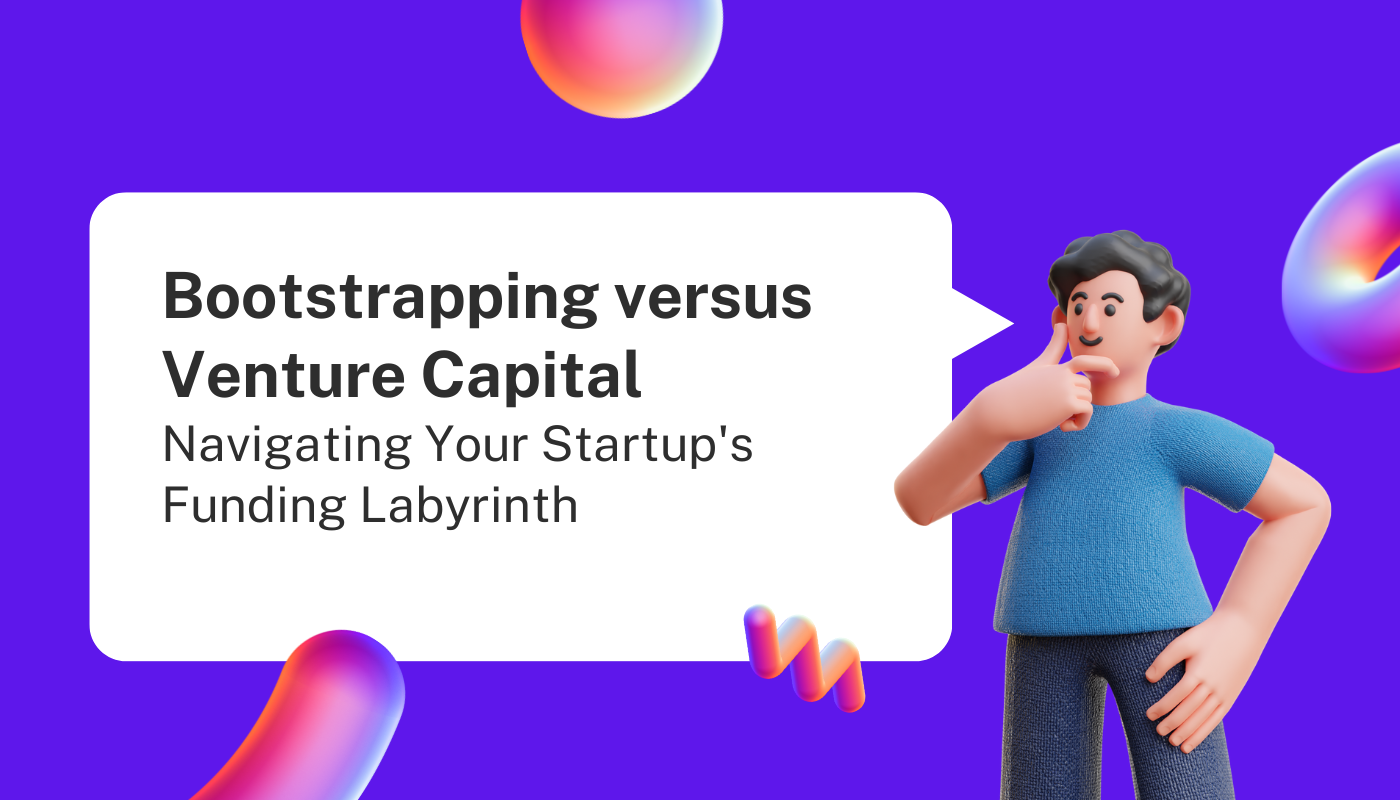


When embarking on an entrepreneurial journey, the road to funding can often feel like navigating a labyrinth. Two main pathways emerge: self-financing, commonly known as bootstrapping, and entering the realm of venture capital. These paths differ vastly, and your decision will inevitably shape your startup's culture, trajectory, and growth potential. Here, we'll unpack each route, delving into its nuances and implications.
Central Argument : The distinction between bootstrapping and venture capital isn't merely financial; it's a strategic decision that impacts a startup's essence. While self-financing fosters independence and cultivates organic growth, venture capital can act as a catalyst, propelling startups to soaring heights, albeit with strings attached.
The Essence of Bootstrapping
Advantages :
1. Sovereignty Over Decisions : A bootstrapped startup is like a ship where the founder is the sole captain, deciding the voyage's direction without external influences.
2. Adaptive Trajectory : Without outside pressures or fixed milestones, there's flexibility to change course, recalibrate, or reinvent as needed.
3. Unaltered Ownership : The fruits of success remain undiluted, as there's no equity shared with external parties.
Example : A bootstrapped software development company has complete sovereignty over its product roadmap, allowing the founder to make decisions based solely on their vision and customer feedback without any interference from investors or stakeholders. Additionally, if market conditions change or new opportunities arise, the company can quickly pivot its focus without being tied down by predetermined milestones or investor expectations, ensuring an adaptive trajectory. Moreover, as the sole owner of the company, the founder retains full ownership and control over its success, preserving its unaltered ownership.
Limitations :
1. Resource Constraints : Growth is tethered to available personal funds or generated revenue, which can sometimes stifle aggressive expansion.
1. Robust Financial Backing : Venture capital can infuse a startup with significant funds, enabling ambitious projects and strategies.
2. Beyond Money : Top-tier VCs provide more than money. They can usher in invaluable mentorship, strategic advice, and industry connections.
3. Buffer against setbacks : A well-funded startup can weather storms and unforeseen challenges with greater resilience.
For example, a technology startup seeking to develop a revolutionary new product may secure venture capital funding. With this robust financial backing, they can invest in research and development, hire top talent, and scale their operations rapidly. Additionally, the venture capital firm may provide experienced mentors who can guide the startup's founders in making strategic decisions and connect them with key industry players to help accelerate their growth. In the face of setbacks or market downturns, the startup's well-funded position allows them to pivot their strategies or
Limitations :
1. Shared Steering : With equity shared, decision-making becomes a collective endeavour, often leading to compromises.
2. Growth Imperatives : Venture capitalists seek returns, translating to intense pressures for quick and substantial growth.
3. Vision Divergence : At times, what the VC envisions for the company might diverge from the founder's original dream, leading to potential friction.
For example, a startup in the technology industry may have secured significant funding from venture capitalists. In the face of market downturns, the startup can utilise their well-funded position to adapt their strategies and explore new markets or product offerings, ensuring their survival and growth. However, the shared steering aspect of having equity shared with venture capitalists may lead to decision-making compromises that may not align with the founder's original vision for the company, potentially causing friction and diverging from their initial dream.
Crafting Your Funding Narrative
For startups in high-stakes, competitive arenas with aspirations for rapid market capture, the allure of venture capital is undeniable. However, for those cherishing self-direction and valuing a gradual ascent, bootstrapping can be a fulfilling journey. Bootstrapping allows founders to maintain complete control over their company's vision and direction without the pressures and potential conflicts that can arise from aligning with venture capitalists. It offers the opportunity for a more organic and sustainable growth trajectory, allowing founders to stay true to their original dream while building a strong foundation for long-term success.